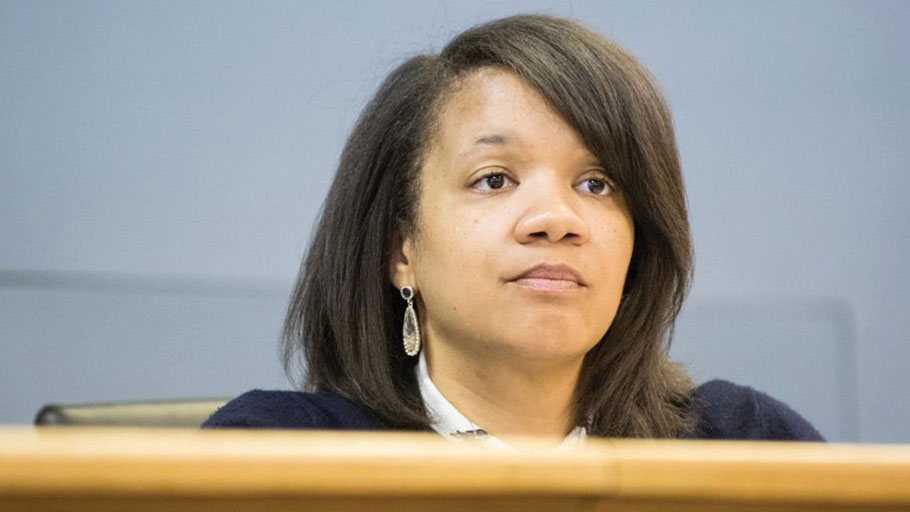Ald. Robin Rue Simmons (5th). Rue Simmons hopes to use the reparations fund to directly invest into the black Evanston community.
By Emma Edmund, The Daily Northwestern —
Evanston has released an outline for creating and implementing a reparations plan, including a plan to possibly redistribute the funds in early 2021.
City Council’s reparations subcommittee will expand this year to include additional experts and members of the community, according to a recent news release. Currently, Ald. Robin Rue Simmons (5th) and Ald. Ann Rainey (8th) are in the subcommittee.
The subcommittee will work with residents, city staff members and other experts to identify possible programs and opportunities to be supported by the reparations fund, which was created and adopted as part of the 2020 budget last November.
“With this fund, we can implement programming to directly invest into black Evanston,” Rue Simmons said at the November City Council meeting. “Our measurements of success can include increased black household income, increase in revenue for black-owned businesses and improved infrastructure for historically black and redlined neighborhoods.”
Last June, the City Council adopted a resolution aimed at ending structural racism and achieving racial equality. The resolution acknowledges the council’s history of racially motivated policies and practices, including the use of zoning laws that supported redlining and bias in government sources.
In September, the council participated in racial equity training, led by political science Prof. Alvin Tillery, which addressed underlying causes of the city’s racial disparities.
The training held a particular focus on the meaning of equity. Deputy city manager Kimberly Richardson said the instruction session was not Evanston’s first discussion of racial injustice, but that the city is looking to put more concrete plans in action.
“Equity is about fairness,” Richardson said. “We’re not talking about equality, which is about sameness.”
Also in September, the council accepted a reparations report compiled by the Equity and Empowerment Commission, which gathered input on reparations from two community meetings. The council then created the subcommittee to begin the planning process.
Revenue from the recreational cannabis retailers tax will contribute to the reparations fund. All of the money collected from the recreational cannabis retailers tax beginning Jan. 1 will be transferred to the fund until it has reached $10 million in revenue from this source.
This decision stems from a desire to start repairing the impacts of racial bias. Rue Simmons said at the November City Council meeting that racially biased arrests for cannabis possession have harmed the black community, with damages lasting for generations.
While the fund will draw from the cannabis tax, the city will also accept donations for the fund from individuals and organizations.
The city will propose a reparations plan in 2020 for City Council consideration. Upon City Council approval, the money from the reparations fund will begin being distributed, possibly in early 2021.
This article was originally published by The Daily Northwestern.















